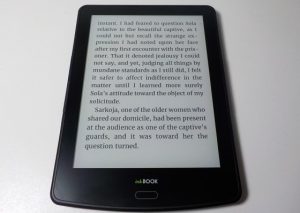

Miller makes Homer pertinent to women facing 21st-century monsters. Expect Miller’s readership to mushroom like one of Circe’s spells. All the while, the supernatural sits intriguingly alongside “the tonic of ordinary things.” A few passages coil toward melodrama, and one inelegant line after a rape seems jarringly modern, but the spell holds fast. He had talked his way past the witch instead.” Circe’s fascination with mortals becomes the book’s marrow and delivers its thrilling ending. And as she grows in power, she muses that “not even Odysseus could talk his way past witchcraft. She midwifes the birth of the Minotaur on Crete and performs her own C-section. She makes lovers of Hermes and then two mortal men. I stepped into those woods and my life began.” This lonely, scorned figure learns herbs and potions, surrounds herself with lions, and, in a heart-stopping chapter, outwits the monster Scylla to propel Daedalus and his boat to safety. It takes banishment to the island Aeaea for Circe to sense her calling as a sorceress: “I will not be like a bird bred in a cage, I thought, too dull to fly even when the door stands open.

The novel, with its distinctive feminist tang, starts with the sentence: “When I was born, the name for what I was did not exist.” Readers will relish following the puzzle of this unpromising daughter of the sun god Helios and his wife, Perse, who had negligible use for their child. This time, she dips into The Odyssey for the legend of Circe, a nymph who turns Odysseus’ crew of men into pigs. The writer returns to Homer, the wellspring that led her to an Orange Prize for The Song of Achilles (2012). Imagine all the prayers.” So says Circe, a sly, petulant, and finally commanding voice that narrates the entirety of Miller’s dazzling second novel. From Shakespeare’s Dark Lady to Spinoza’s philosophical heresies, Kadish leaves no stone unturned in this moving historical epic.Ĭhock-full of rich detail and literary intrigue.Ī retelling of ancient Greek lore gives exhilarating voice to a witch. Still, Kadish’s characters are memorable, and we’re treated to a host of them: pious rabbis and ribald actors, socialites and troubled young men, Mossad agents and rule-worshipping archivists. Clocking in at almost 600 pages, the novel could have used a judicious pruning to highlight the intellectual game of cat and mouse that plays out across four centuries. “I am one soul in a great city.” Ester risks everything to wrestle with ideas that counter rabbinical teachings, developing a secret identity to protect her family from harm-and relishing her newfound freedom. “Here I begin,” writes Ester in her very first attempt. Kadish ( I Was Here, 2014, etc.) deftly weaves contemporary scholarly intrigue with the voice of Ester Velasquez, an incandescent 17th-century mind who longed to engage with the brilliant men of her day.

Despite butting heads over process, the unlikely pair of literary detectives uncover a stunning truth: the writer of the documents is a 17th-century woman who chronicled the Jewish diaspora, from the horrors of the Spanish Inquisition to the rich trade city of Amsterdam and the relative safe haven of London. She returns to the house with Aaron Levy, an eager American graduate student, in tow. But a cursory look at the papers tells her she’s holding something special. Close to retirement, Helen’s seen it all. When Helen Watt receives a phone call from a former student about centuries-old documents secreted away in his posh residence, she doesn’t hold out much hope for their importance. A mysterious collection of papers hidden in a historic London home sends two scholars of Jewish history on an unforgettable quest.


 0 kommentar(er)
0 kommentar(er)
